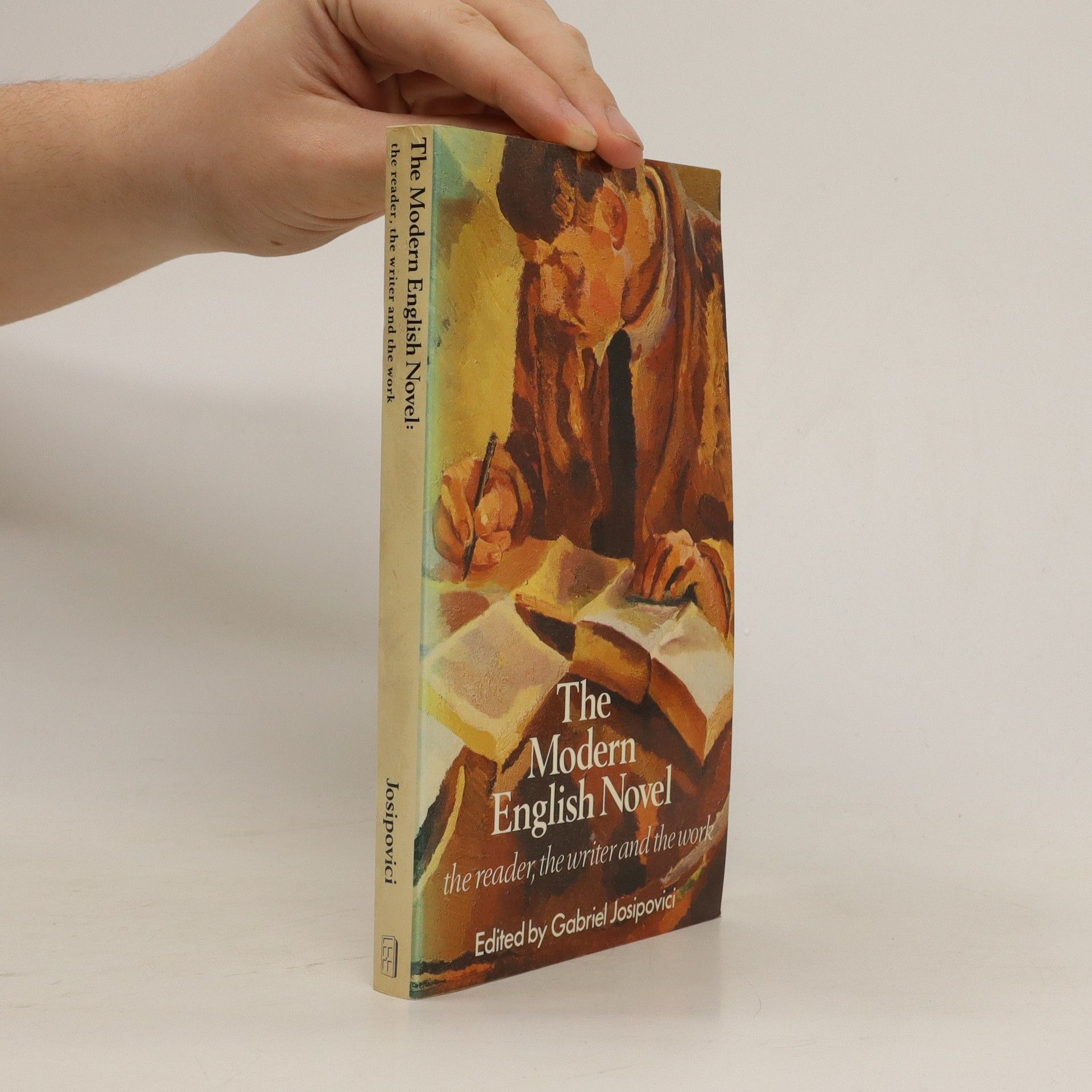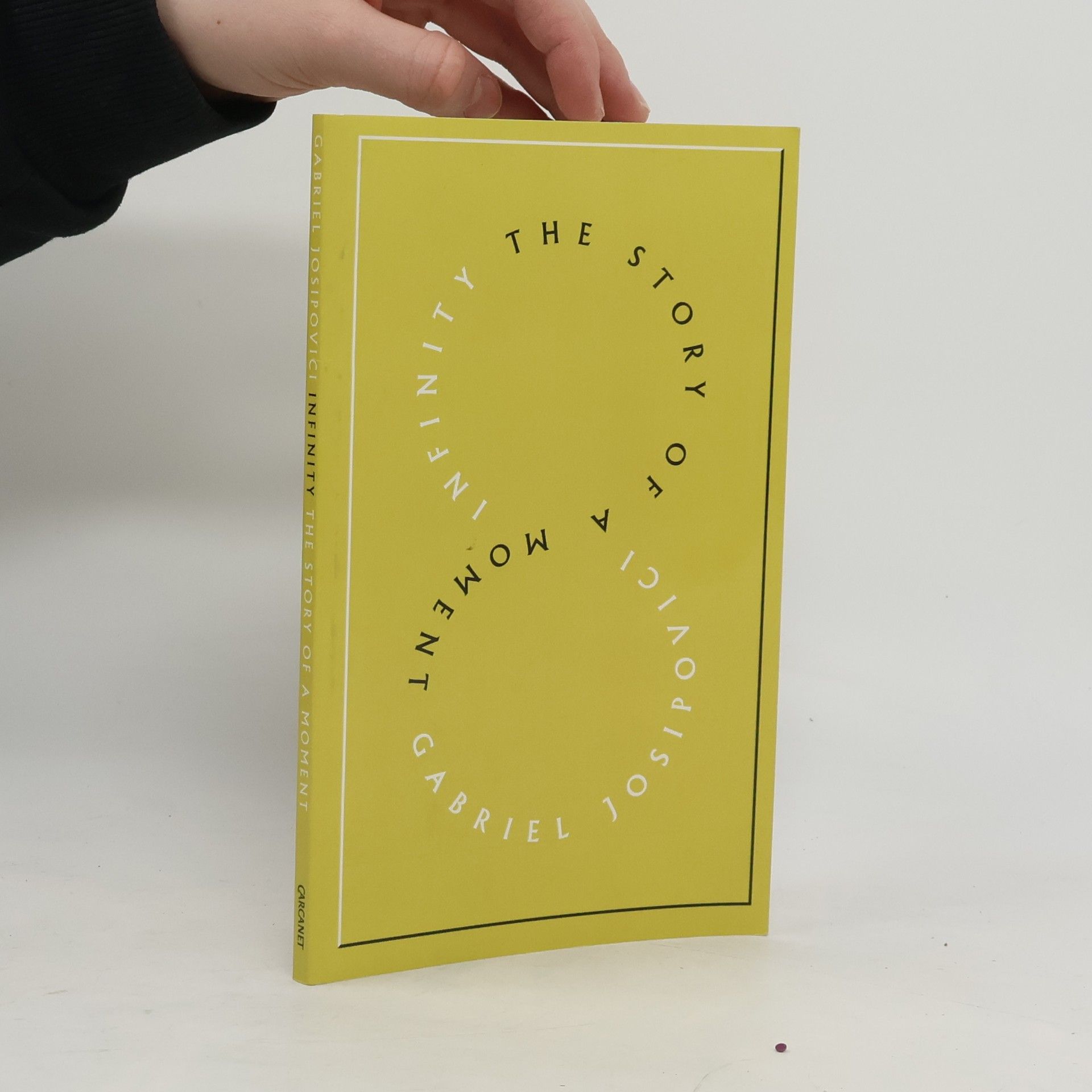Partita and A Winter in Zurau
- 288 pages
- 11 hours of reading
This is Gabriel Josipovici's most melodramatic and enigmatic fiction to date, as though one of Magritte's paintings had come to life to the rhythms of a Bach partita.
Gabriel Josipovici delves into the complexities of human experience, exploring the search for meaning within the modern world. His writing is characterized by a profound examination of character psychology and a nuanced style that uncovers subtle layers of significance. The author focuses on universal themes such as memory, identity, and relationships, investigating them with penetrating insight. His extensive body of work has established him as a significant voice in contemporary British literature.






This is Gabriel Josipovici's most melodramatic and enigmatic fiction to date, as though one of Magritte's paintings had come to life to the rhythms of a Bach partita.
Exploring the richness of Biblical narratives reveals their depth beyond childhood interpretations. These stories emerge from a sophisticated literary tradition, articulated in expressive Hebrew and interwoven with diverse writings. The book encourages readers to engage with the narratives using adult perspectives, uncovering often overlooked dimensions, wit, and humor. By doing so, it highlights the universal appeal and contemporary relevance of these tales, inviting a fresh appreciation for their complexity and significance.
An autobiography emerges from this Covid diary by the celebrated novelist, short story writer, critic and playwright.
Nach dem Tod seiner ersten Frau zieht er von London nach Paris und später mit seiner zweiten Frau nach Wales. Er lebt zurückgezogen als Übersetzer und Liebhaber von Musik und Literatur. Sein Leben ist geprägt von Gewohnheiten und Routinen, doch es gibt ein verborgenes Vorleben, das er nicht erinnern will. Gabriel Josipovici, bekannt als „englischer Thomas Bernhard“, erzählt unterhaltsam von diesem klugen Mann.
This personal book explores both the public and the private dimensions of forgetting and its scary Siamese twin, remembering.
In the course of a single extensive interview, this novel recounts the colorful life of a wealthy, eccentric Italian composer through multiple layers of unreality. As Massimo recalls what his master, Tancredo Pavone, told him about his life, he often repeats Pavone’s outrageous opinions on everything from the current state of the world to the inner life of each musical note. Eventually, it becomes comically clear that not only does Pavone not always distinguish between memory and imagination, but also that Massimo does not always understand what it is he is repeating. A moving portrait of a close bond between two people from utterly different social spheres, this narrative is an insightful look into the world of a composer and the process of artistic creation.
Gabriel Josipovici hat ein überaus komisches Buch geschrieben, das das Leben durchschaut, um ins Herz aller Kunst zu zielen. Und zu treffen. 'Ich hatte Glück, Massimo, sagte er zu mir, dass das einzige, wofür ich mich wirklich interessiert habe, die Frauen und die Musik waren. Indem die Frauen dich verletzen, bereichern sie dein Leben. Selbst meine Frau hat mein Leben bereichert.' Jener Massimo, der hier erzählt, von gelegentlichen Fragen unterbrochen oder ermuntert, war der Butler seines verstorbenen Herrn. Und dieser Herr, Tancredo Pavone, wird uns als einer der großen italienischen Komponisten des 20. Jahrhunderts vorgestellt (und der Kenner wird sein zusätzliches Vergnügen daran haben, hinter diesem Namen einen anderen zu ahnen). Ungewöhnlich in seinen Auffassungen, nicht zuletzt von Musik, war er so ungewöhnlich, wie einer sein muss, der in sich Unerhörtes hört und das zum Klingen bringen will. Der Butler, der seinem Herrn so nah wie fern war, hat nicht vergessen, was er gesehen und gehört hat, und so kann er von der großartigen Arroganz, der Eigensinnigkeit und Lebensneugier Pavones berichten, die aus diesem Nachkommen eines sizilianischen Adelsgeschlechts einen großen Klanger- finder gemacht haben.
Zwei Männer laufen durch Londons Parks, an Londons Wasserläufen entlang. Einer von beiden, Autor und Universitätsdozent, redet die ganze Zeit. Er erzählt - unter anderem von dem Buch Moo Pak, an dem er gerade schreibt. Vom ersten Satz an fesselt dieser Endlostext über Gott und die Welt. Jack Toledano, informiert, hoch gebildet, mit britischem Commonsense, unterhält mit erstaunlichen Wertungen und scharfen Urteilen: über das Werk von Kollegen oder die Abwege der Politik. Ein Alleinredner, aber auch ein anregender Begleiter, einer mit dem ins Gespräch zu kommen wäre. Toledano ist sephardischer Jude, er stammt aus Ägypten. Eine Perspektive »halb von außen« prägt die Art des Befremdetseins, macht seine Zivilisationskritik ergiebig. »Vor allem ist es Weisheitsliteratur, eine Mixtur erzählender Genres – sogar Biographie und Literaturkitik kommen ins Spiel… Moo Pak ist hoch intelligent und bisweilen sehr witzig…« Frank Kermode »Moo Pak erinnerte mich an den Reichtum und den Eigensinn von Robert Burtons Anatomie der Melancholie, ein Werk, das ich immer bei mir habe. Gabriel Josipovicis hervorragender und anregender Roman wird sich dazugesellen.« Alan Sillitoe
„Fehler machen“ erzählt und erforscht die Ironie der Geschichte zweier Beziehungen. In der Nachfolge von “Cosi fan tutte”wechseln Paare – nicht nur einmal – die Partner und geraten immer tiefer in einen Rosenkrieg mit allen Schikanen. Dies ist die mit fledermausfeinen Ohren eingefangene Partitur aller sich endlos qualvoll im Kreise windender Beziehungs-Trennungs-Gespräche. Nur wenn alles lange genug vorbei und weit genug weg ist, wirds eher wieder was zum Lachen. Denn Paare begreifen nur langsam und brauchen einigen Aufwand an Argumenten, Entlarvungen und Durchblicken, daß es in der Liebe keine Fehler gibt, nur falsche Entscheidungen. Es kommt darauf an, die wahre Wahlverwandtschaft zu finden und ihr zu folgen. Auch nach einigen Irrwegen. Möglichst mit glücklichem Ausgang. Wenigstens vorläufig. Wie hier. Fehler machen besteht aus der allmählichen Verfertigung von Glück, das nicht gleich als solches empfunden wird.
Der Titel des Romans „Nur ein Scherz“ ist ein vieldeutiger Ausdruck für eine zweifelhafte Geschichte: Ein reicher Baron misstraut seiner viel jüngeren Frau Elsbeth und setzt einen Mann auf sie an. Elsbeth hingegen möchte ihren geizigen Mann loswerden und engagiert ebenfalls einen Mann – dummerweise handelt es sich um denselben: den Clown Alphonse. Alphonse, der über eine seltene Gabe der Geduld verfügt, nimmt von beiden Seiten Vorauszahlungen und beobachtet, wie sich die Dinge entwickeln. Die Situation wird durch den Fahrer und Faktotum des Barons, Felix, sowie Alphonses Freunde, den Kneipenwirt Lino und dessen Tochter Rosalia, weiter verkompliziert. Auch die Kunststudenten Charlie und Natascha, die hinter Alphonse und seinem Geld her sind, bringen Schwung in die Handlung. Als Natascha als Isabelle bei Alphonse einzieht, entfaltet sich ein Chaos aus Gier, Frust und Eifersucht. Die Protagonisten selbst erzählen die Geschichte, offenbaren ihre Gedanken, Gefühle und Intrigen. Ohne einen allwissenden Erzähler wird der Leser zum aktiven Teilnehmer, der die Fäden in der Hand hält. In diesem interaktiven Dialog-Roman wird aus kleinen Alltagsbeobachtungen und Empfindungen eine Schönheit geschaffen, die bleibt.